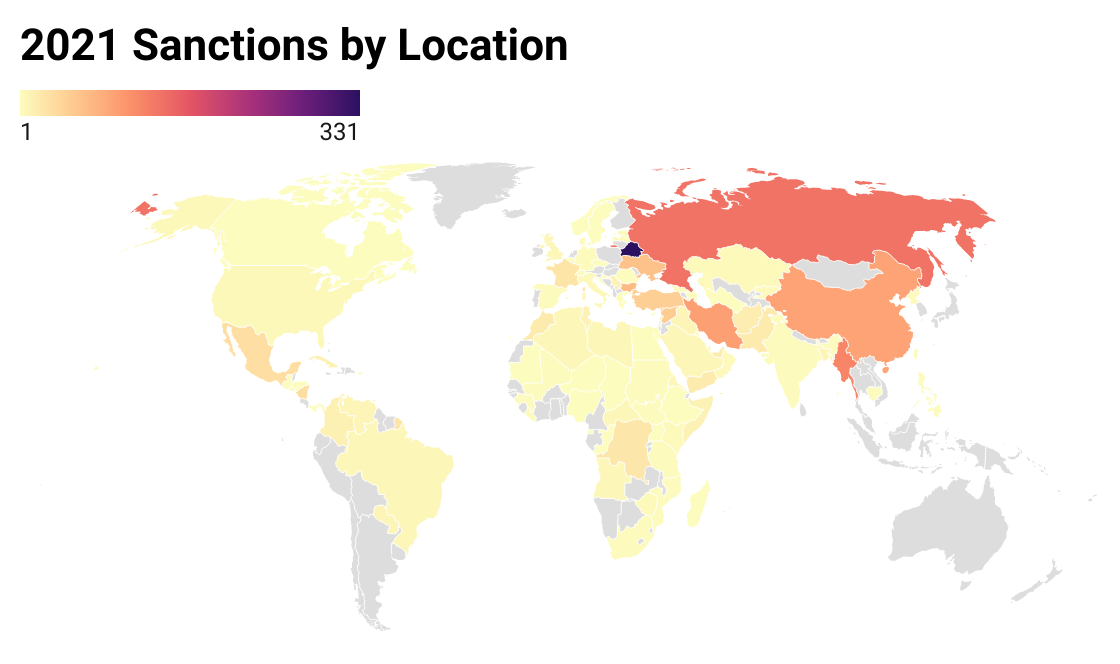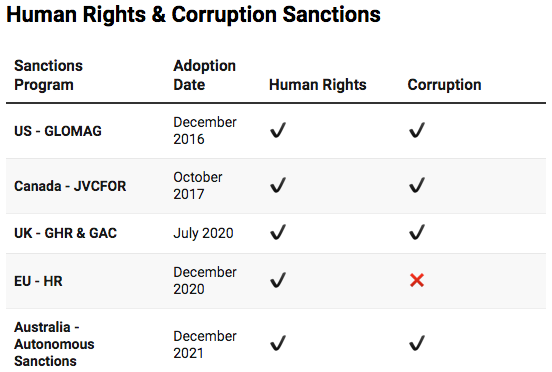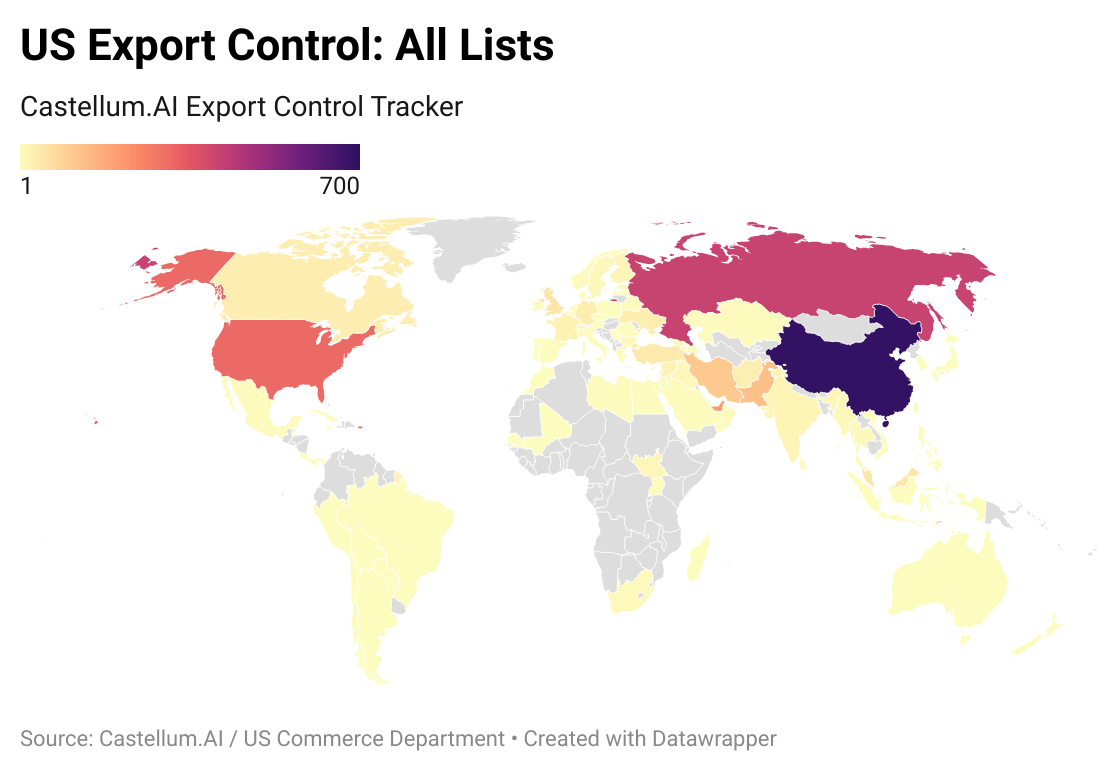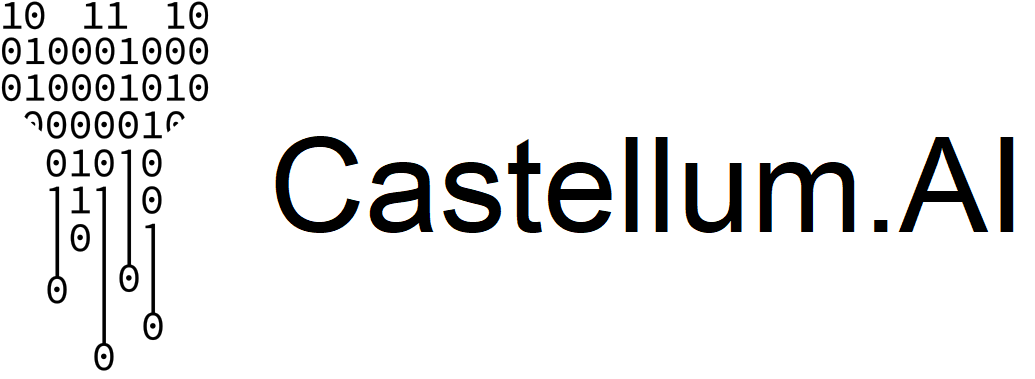Latest Insights & Articles

Incident Response & Sanctions Navigating Ransomware Risks
In October 2021, the US Treasury's sanctions authority, the Office of Foreign Assets Control (OFAC), issued sanctions compliance guidance for the cryptocurrency industry. Castellum.AI has helped its users meet or exceed the specific steps mentioned in the guidance document recommendations since January 2021.

2021 Sanctions in 12 Charts
In 2021 China rapidly grew its sanctions program, the US and EU renewed focus on corruption and human rights abuses globally, the US increased its crypto offensive and for the first time in perhaps a decade, Iran was not a major focus. See this and more to round up the year in global sanctions.

Human Rights Sanctions in 5 Charts. Who Applies Them, and Where?
Sanctions programs focused on human rights and corruption are increasingly at the forefront of the public debate. However, the data shows significant disparities between designations between US, UK, EU, and Canada programs. These graphs show the distribution and depth of each human rights sanctions program to date in preparation for Human Rights Day.

Export Control Tracker Fourth Edition: November 2021
Commerce announced the addition of 31 entries to the Entities List in November, including eight firms in China involved in the development or acquisition of quantum computing capabilities and 16 China- and Pakistan-based entities involved in Islamabad’s nuclear program. BIS additionally reached an agreement with a US-based firm over unauthorized exports to Huawei in the bureau’s first enforcement action since the 2019 adoption of export controls against the Chinese tech firm.

Latin America: Most Sanctioned Area In The World?
Latin America flies under the sanctions radar, but this region is more sanctioned by the world than North Korea or Iran. As of October 2021, 1990 sanctions have been imposed against designees in Latin America, with 95% of them imposed by the United States.

OFAC Increases Use of Sanctions Advisories by Over 100% Since 2019
In the last two years, OFAC has issued ten sanctions advisories, whereas in the eight preceding years, it issued nine advisories. OFAC under the Biden Administration has maintained the tempo set in the Trump Administration’s last year, issuing four advisories in its first year alone. See all of the topics of sanctions advisories here.

Export Control Tracker Third Edition: October 2021
Commerce announced that it will add four major cyber actors under its export controls list. Amongst those targeted is Israel’s NSO Group, which is responsible for creating and exporting the Pegasus military-grade spyware that has been used to spy on journalists, activists, and heads of governments from around the world. Commerce will also be designating Candiru, another Israel-based cyber firm; Positive Technologies, a Russia-based computer that was involved in the SolarWinds hack; and Computer Security Initiative Consultancy PTE. LTD, a Singapore-based cybersecurity consulting firm. The designation of the two Israeli entities signals that the United States will begin taking cyber offenses much more seriously, even if it disrupts its strategic security partnership with the Israeli government.

OFAC’s Virtual Currency Guidance
In October 2021, the US Treasury's sanctions authority, the Office of Foreign Assets Control (OFAC), issued sanctions compliance guidance for the cryptocurrency industry. Castellum.AI has helped its users meet or exceed the specific steps mentioned in the guidance document recommendations since January 2021.

Export Control Tracker Second Edition: September 2021
The DDTC runs two main lists: Statutory Debarment and Administrative Debarment. While a designation on either list will result in an individual being prohibited from participating directly or indirectly in any activities that are subject to the International Traffic in Arms Regulations (ITAR), there are substantial legal differences between the two lists. For example, a designation under the Statutory Debarment is made “solely upon the outcome of a criminal proceeding,” whereas the Assistant Secretary of State for Political-Military Affairs may debar and prohibit any individual under DDTC’s Administrative Debarment for any of the reasons outlined in the ITAR.

Export Control Tracker First Edition: July & August 2021
Export controls are laws that regulate and restrict the release of critical technologies, information, and services to foreign nationals. Over 50 countries globally, from Argentina to Ukraine, have sophisticated export control regimes that focus on goods, technologies and locations. For example, carbon fiber from the United Kingdom cannot be exported to North Korea. But only the US and Japan have export watchlists that name individuals and entities, in addition to goods. Japan’s export control list, however, is very much driven by US listings, with over 65% overlap with US sanctions and export control lists; it also changes infrequently. For this reason, our export control tracker will initially focus only on US export control lists.
